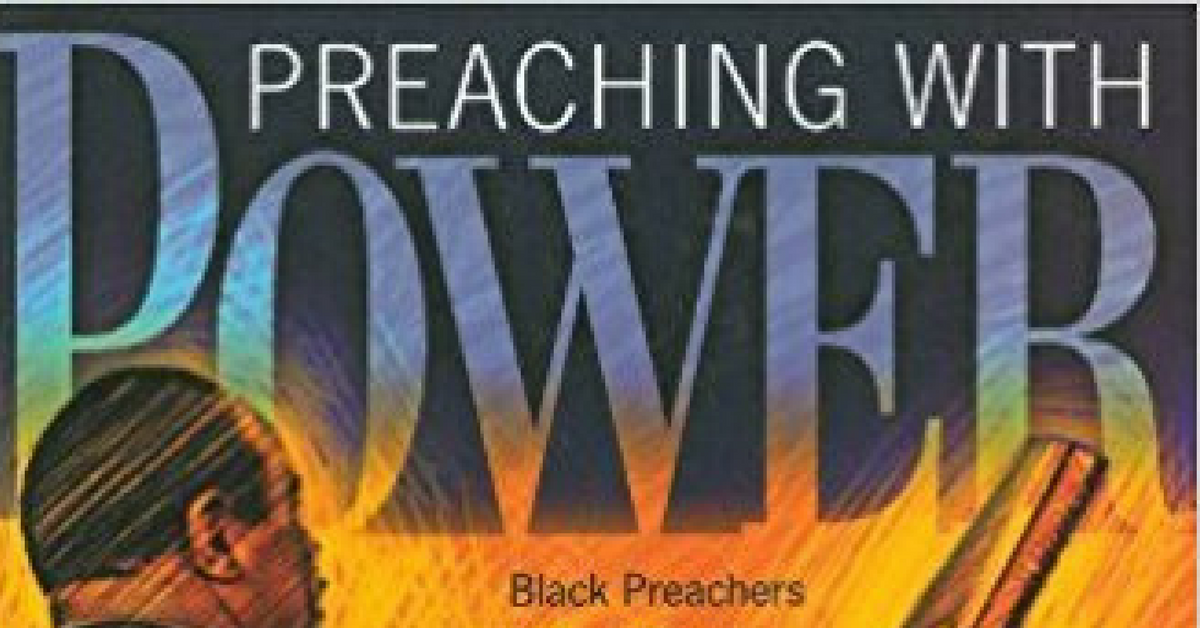
James Doggette is a professor at Oakwood College as well as the Pastor of the Madison Mission Seventh-day Adventist Church in Huntsville, Alabama. Dr. Doggette is a dynamic speaker who relatively recently has held an Amazing Facts seminar in Huntsville Alabama.
Understanding of Preaching
 Dr. Doggette like Barry Black sees importance in Phillip Brooks definition of preaching as “truth poured out through personality.” Dr. Doggette nuances this insight by stating that “Preaching is divine truth or biblical truth communicated through personality.” Dr. Doggette also echos Paul Scott Wilson by emphasizing that preaching is an event and not “merely verbal communication.”
Dr. Doggette like Barry Black sees importance in Phillip Brooks definition of preaching as “truth poured out through personality.” Dr. Doggette nuances this insight by stating that “Preaching is divine truth or biblical truth communicated through personality.” Dr. Doggette also echos Paul Scott Wilson by emphasizing that preaching is an event and not “merely verbal communication.”
Method of Sermon Preparation
Pastor Doggette states that he first seeks to know the story, then he condenses the sermon from that story into one sentence. He and Dr. Jones notes that this is what Haddon Robinson refers to as the Big idea. Doggette notes that Haddon Robinson’s work has influenced his preaching more than any other book.
Pastor Doggette’s main exegetical approach is to look at the Biblical story and seek to find the story either in the passage or behind the passage. He states that he is not really concerned primarily about word studies, but about getting at the story. He notes that every passage has as story.
 Also Doggette, contrary to much opinion, does not either use a manuscript in the pulpit or write out one. He refers to the performed sermon as a “jazz performance in that feeling plays a big role in the outcome of the sermon.”
Also Doggette, contrary to much opinion, does not either use a manuscript in the pulpit or write out one. He refers to the performed sermon as a “jazz performance in that feeling plays a big role in the outcome of the sermon.”
Understanding of Adventist Preaching
Pastor Doggette reminds all Black Adventist preachers to be sure to preach the Seventh-day Adventist doctrinal and prophetic themes in addition to themes of liberation and the mangement of power. Doggette does not want Adventist preachers to forget that they are Adventist. He believes that a “greener grass” idea is creeping into the Black Adventist ministry as more and more Black Adventist pastors obtain graduate degrees and doctorates from other schools. Doggette believes that rubbing shoulders with great preachers from other denominations has caused the Black Adventist preacher in many cases to “discount the distinctive truths and values we have as Adventists.”
Understanding of Black Preaching
Dr. Doggette sees black preaching as primarily prophetic in the tradition of the Old Testament prophets. He sees, therefore, a primary purpose of the Black preacher is to “stir things up.” He suggests that Black Adventist preachers who seek to be true to Black preaching and Seventh-day Adventist preaching should study the lives of the prophets and note that they were often opposed but it was God who held them up when others did not.
Dr. Doggette’s brings a theological focus to both Black preaching and Adventist preaching. He sees importance in the Black Adventist preacher being true to both traditions. I like Doggette’s statement that Black preaching is prophetic. Too often we think of Black preaching as just a style of preaching. Others may think of it as a structure to our sermons like “narrative preaching.” Doggette sees it as primarily an approach to preaching that “stirs things up” as it prophetically challenges those with power to use it correctly.
Dr. Doggette also points out that there is a great temptation to set aside distinctive Adventist teachings to run after the “greener grass.” I believe that the Adventist distinctive teachings, but also the Adventist distinctive “mindset” or “theological approach” should undergird all that we do. As I have stated elsewhere “If it ain’t the gospel it shouldn’t be preached, if it ain’t Adventist, why has God chosen you to preach it?”
 We have now looked at every one of the preachers in the book. This book is an important book for at least 2 reasons. First it is one of the few Adventist homiletics books in print. Secondly, it is specifically about Black Adventist preaching It may be the only book on that subject published by the church.
We have now looked at every one of the preachers in the book. This book is an important book for at least 2 reasons. First it is one of the few Adventist homiletics books in print. Secondly, it is specifically about Black Adventist preaching It may be the only book on that subject published by the church.


 Dr. Doggette
Dr. Doggette 


